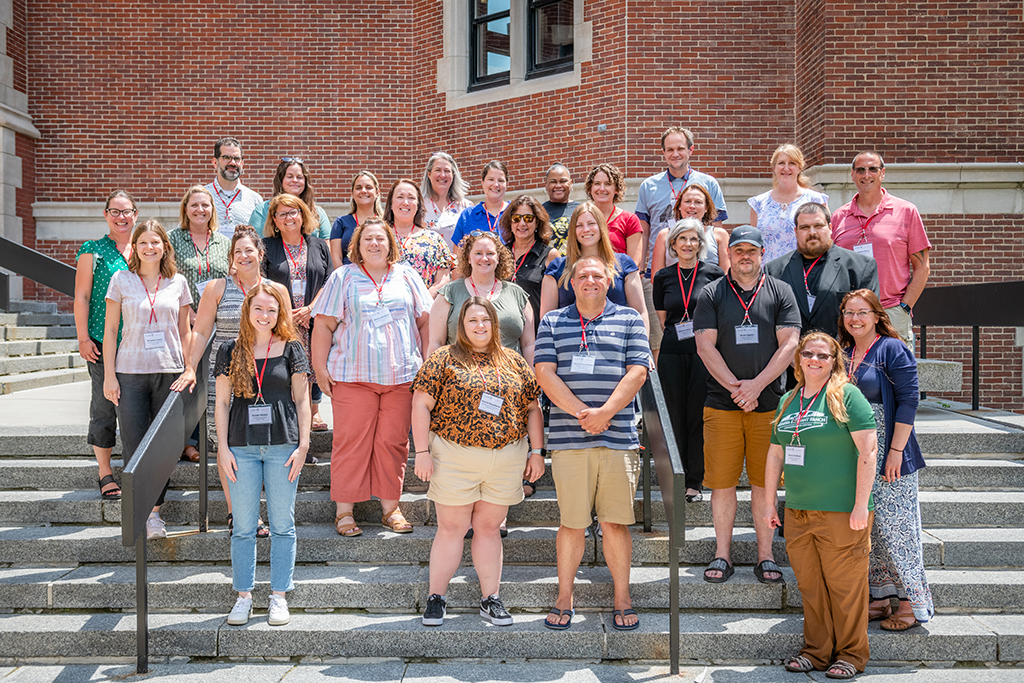Clark–APA workshop for high school teachers returns to campus after pandemic hiatus

For the first time in three years, Clark welcomed psychology teachers from across the country to campus for the American Psychological Association–Clark University Workshop for High School Teachers. During the conference, 25 educators heard from master teachers, enhanced their teaching skills, learned about groundbreaking research by Clark faculty, and networked with their peers.
Except for 2020 and 2021, the workshop has been held annually since the summer of 2005.
This year’s presenters included Clark Psychology Professors Alena Esposito and Andrew Stewart; Jeanne Turner of Linn-Mar High School in Marion, Iowa; and Michael Sandler of Arlington High School, Arlington, Massachusetts. Onarae Rice, professor of psychology and neuroscience at Furman University, delivered the keynote address.
Workshop attendees had the opportunity to tour the Frances L. Hiatt School of Psychology, where doctoral student Sangmi Park gave them a demonstration of the eye-tracker, and to visit the University’s Archives and Special Collections, where Clark archivist Cynthia Shenette shared documents related to the history of psychology.
The APA, founded at Clark in 1892 by the University’s first president, G. Stanley Hall, celebrates its 130th anniversary this year.
Nancy Budwig, professor of psychology and organizer of the workshop, and Susan Orsillo, senior director of psychology education and training at APA, presented a panel on the transition to college and the APA’s Introductory Psychology Initiative, which aims to make introductory psychology a transformational experience for students.
“The transition from high school to college is one of the most major developmental shifts students undertake on their academic journeys,” said Budwig, who also noted that more than one million undergraduate students take an introductory psychology course.
“Successful introductory psychology courses help students grow personally, academically, and professionally, with skills that will be valuable for the rest of their lives, regardless of their career,” Budwig added. “We welcome the opportunity to partner with the APA to create a forum for best practices in teaching and learning.”
The APA–Clark University Workshop for High School Teachers grew out of the vision and generosity Lee Gurel ’48, who studied psychology as a Clark undergraduate. Budwig said the APA’s Introductory Psychology Initiative is consistent with Gurel’s goal for the conference: to better align the teaching of high school psychology with the coursework that goes on at the college level.


